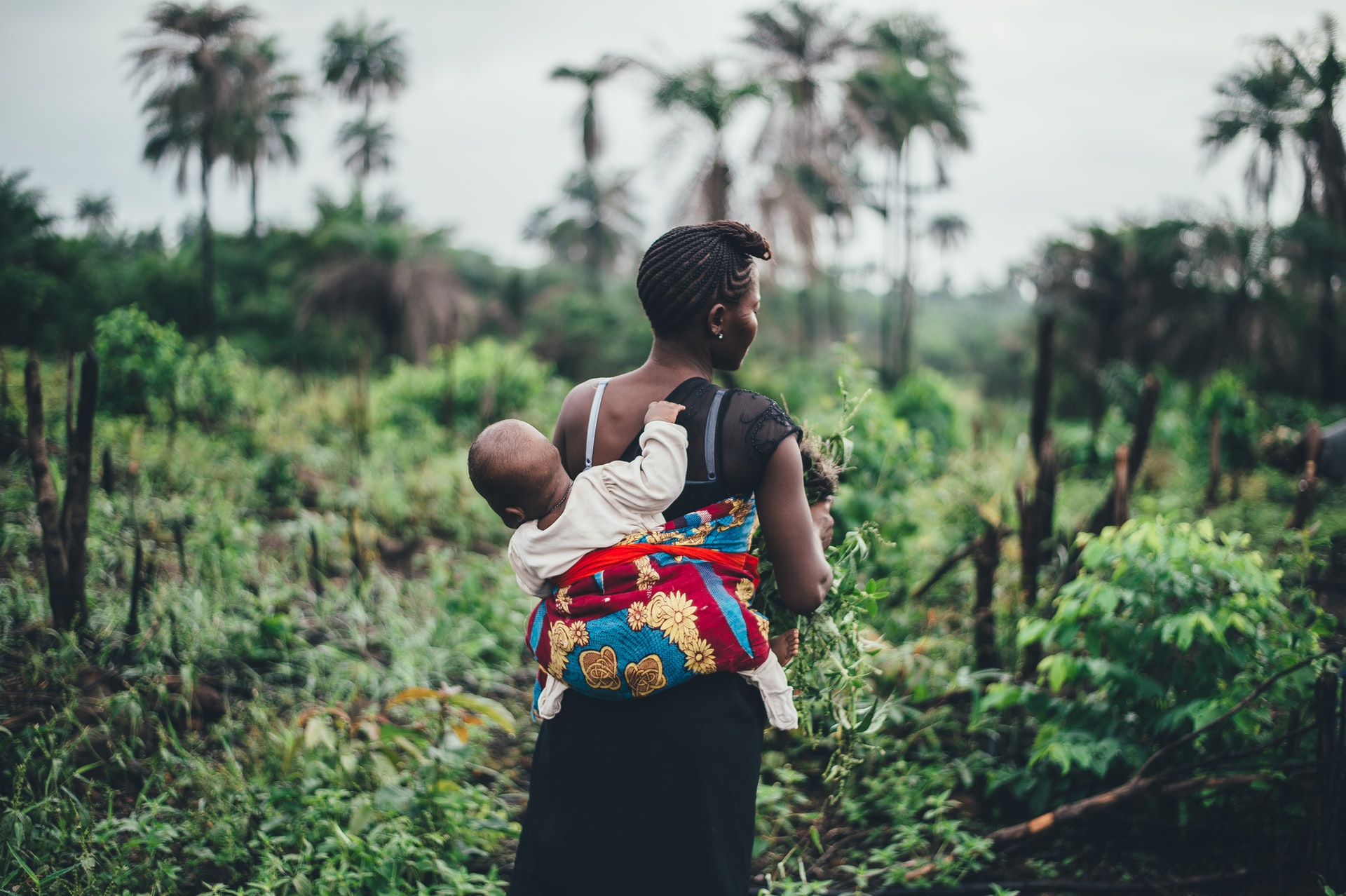
(Annie Spratt on Unsplash)
By Vik Sohonie
Africa is a Country
When independent Congo’s first prime minister, Patrice Lumumba, was assassinated in 1962, over 100,000 people protested in Beijing Workers’ Stadium. Thousands more protested in New Delhi and Singapore.
When Sudan lacked a formal plaque at the 1955 Bandung Conference, where the leaders of Asia and Africa declared the Third World project, India’s Jawaharlal Nehru wrote “Sudan” on his handkerchief, ensuring Africa’s then largest country a seat.
It was a time when Asia and Africa, home to almost 80 percent of humanity, found kinship in their shared trauma and conjoined destiny. Both were always spoken of in tandem. Martin Luther King Jr.’s “Letter from a Birmingham Jail,” drew inspiration from what he saw overseas: “The nations of Asia and Africa are moving with jet like speed toward gaining political independence.”
Too often we forget that the most defining event of the 20th century was not World War II or the Cold War, but the liberation of billions in Asia and Africa between the 1950s and 1980s as citizens of almost 100 new-born countries.
It also marked the revival of an ancient, pre-European connection. Historically, Asia and Africa were enmeshed centers of wealth and knowledge and the gatekeepers of the most lucrative trade routes. The Roman Empire’s richest region was North Africa, not Europe. A severe trade imbalance with South Asia forced Roman emissaries to beg spice traders in Tamil Nadu to limit their exports.
Western Europeans left their shores in desperation, not exploration, in the 1500s to secure a maritime route to the wealthy Indian Ocean trading system that integrated Asia and Africa. Somali traders grew rich as middlemen transiting coveted varieties of cinnamon from South Asia to Southern Europe. The Swahili coast shipped gold, ivory and wildlife to China. Transferring the world economy to the Atlantic first required Portugal’s violent undoing of the flow of goods and peoples between Asia and Africa.
In Bandung, Indonesia’s Sukarno declared “a new departure” in which peoples of both continents no longer had “their futures mortgaged to an alien system.”
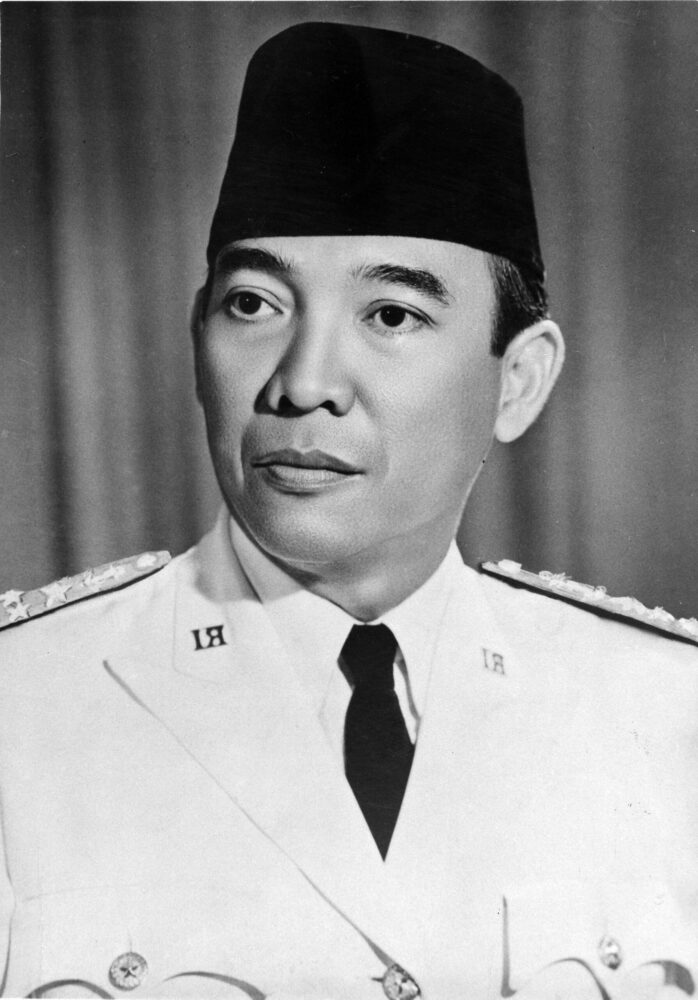
Official Portrait of President Sukarno. (Wikimedia Commons)
Yet that departure became a wide divergence that is complex to comprehend. Over the last few years, I’ve shuttled between the megacities of Asia to East and Central Africa. I also grew up in four Asian countries — India, Thailand, Philippines, and Singapore — and lived through Southeast Asia’s exponential rise.
The gap between Africa and East Asia, including Southeast Asia, is perplexing because we share much in common — culture, values, spirit, and worldview. I’m reminded of this in Somalia, Sudan, Uganda, or Ghana, where I’ve felt an immediate sense of fraternity.
It’s now a familiar story: 70 years ago, African incomes and literacy rates were higher than East Asia, then an epicenter of major wars. But in one generation, East Asia achieved wealth, human development, and standards of living that rival a tired, less relevant Western world.
The shockingly inept response by many Western countries to a historic pandemic has only amplified calls for Africa to abandon the Western model and learn from its once closest allies. A new book titled Asian Aspiration: How and Why Africa Should Emulate Asia, hit stores this year, co-authored by former Nigerian and Ethiopian heads of state. An op-ed in Kenya’s Star newspaper even prior suggested Kenyans shift their gaze from the supposed advancement of Westerners to “the progress of our comrades in the East.”
Lessons of East Asia
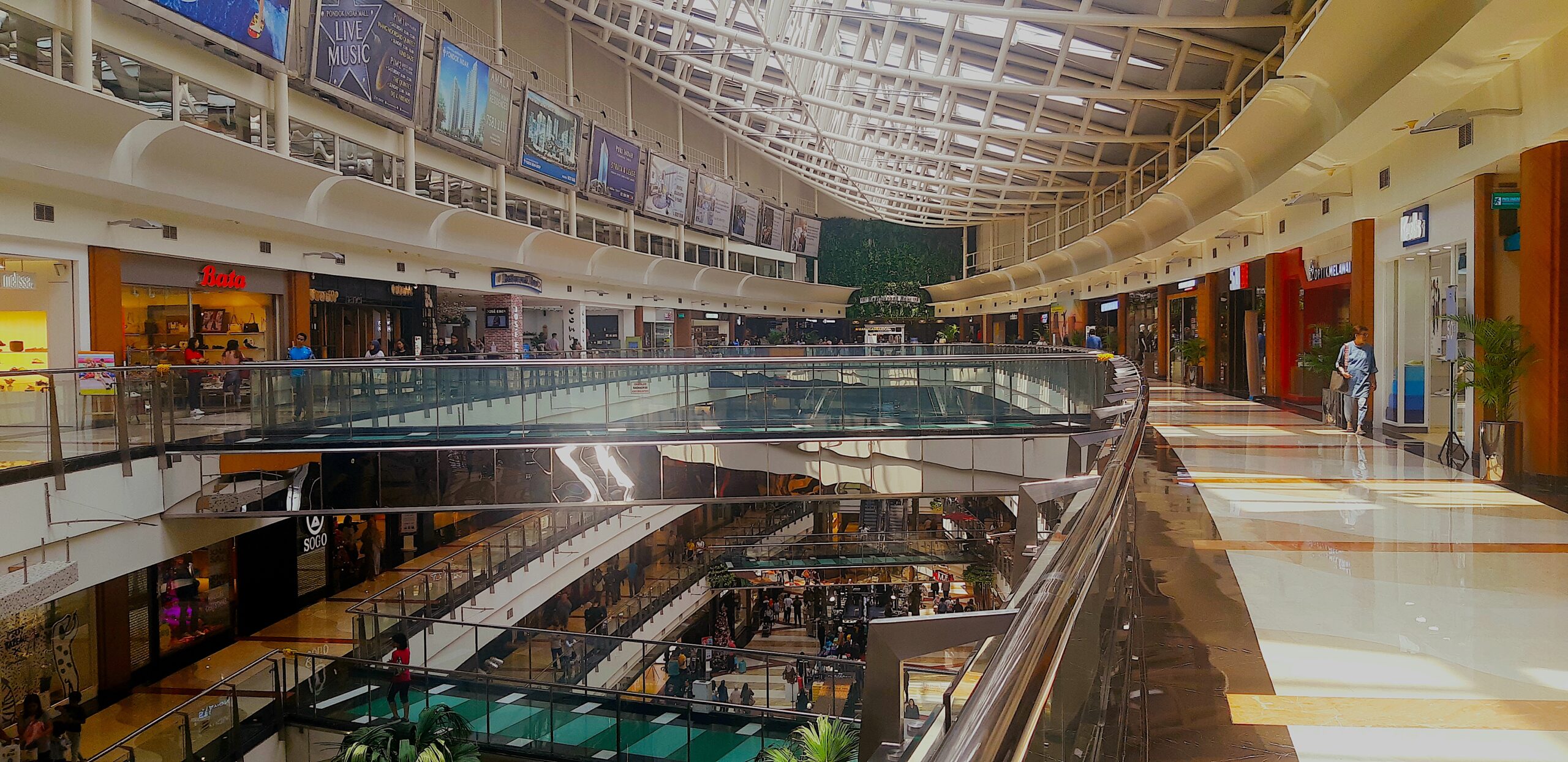
Jakarta’s Pondok Indah Mall 2. (Albertus Aditya, CC BY-SA 4.0)
The incessant idea that Africa’s future lies in models not of its own making can be patronizing. But Africa can indeed learn from the successes and pitfalls of East Asia, the world’s most economically dynamic region also built from scratch, while imparting wisdom of its own.
Many who previously pondered this gap came up with multiple theories, but often ignored a simple reality: Africa’s geography. Like Latin America, Africa is bedeviled by a predatory power to its north that siphons capital, talent, labor, and hope. By contrast, East Asia, even with several U.S. bases, is an ocean away from the United States and a 12-hour flight from Western Europe.
Europe’s proximity to Africa also cultivated a perennial barrier to development: the Western aid industry. Whether I’m in Haiti or Chad, the sheer domination of Western NGOs, development agencies, aid convoys, and all manner of plunder masquerading as goodwill — $40 billion more illicitly flows out of Africa than incoming loans and aid combined — is something I never saw even 25 years ago in Southeast Asia.
Industries look for growth opportunities. Developed societies with robust public systems in East Asia offer few for saviors. The streets of Bangkok and Hanoi are lined with Toyotas and tourists, not wide-eyed youths in armored vehicles guided by white burden. The development industry and most of its participants I’ve had the misfortune of meeting are toxic. Large swaths of Africa remain under occupation of a different kind.
For much of the 20th century, Africa also faced a virulent settler colony in its south which destabilized the region and was so hateful of Black Africans that its mercenaries set up a series of bogus health clinics to surreptitiously spread HIV under the guise of charitable healthcare.
East Asia’s settler colony, Australia, was never able to replicate South Africa’s belligerence. It did lay waste to Papua New Guinea (where it continues to imprison asylum-seekers) but Australia never invaded or occupied Indonesia or the Philippines.
Fallen Generation of Leaders
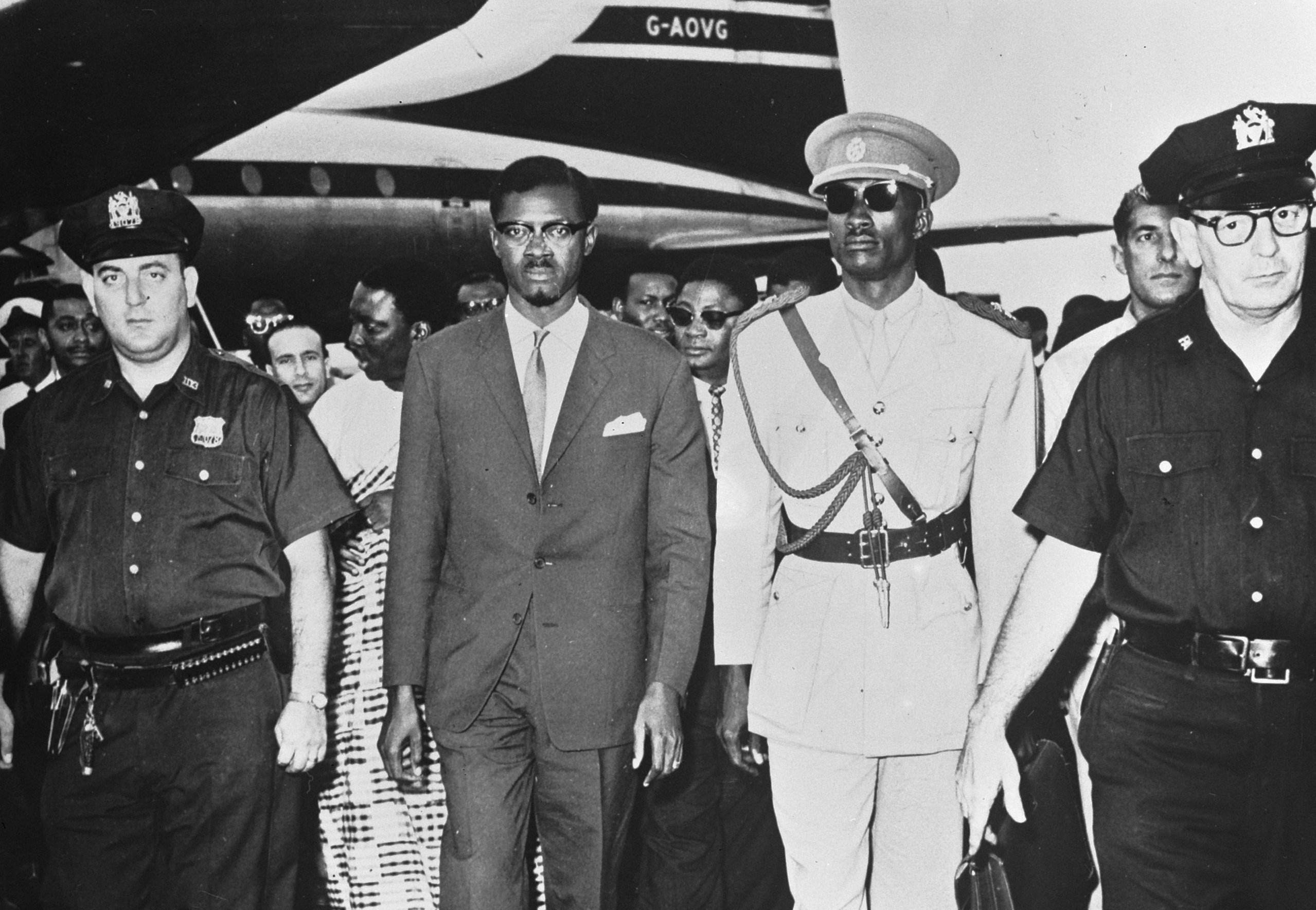
The Congo’s Patrice Lumumba, second from left, arriving in New York , July 24, 1960. (Fotograaf Onbekend, CC0, Wikimedia Commons)
Another fallacy explaining African inertia is poor leadership. Leadership is paramount, but Africa produced a generation of independence era leaders whose values and decency the world desperately needs today. All were killed or overthrown by the West — because Africa is a far deeper reservoir of resources than East Asia.
South Korea, Singapore, and Taiwan are not resource rich. Thailand was never even colonized. An Asian country afflicted by similar conditions to Africa is mineral-rich Myanmar, closed to the wider world and progress for decades. Showcases of democracy aside, its kleptocratic, authoritarian political culture, like many African countries, was inherited from British rule. George Orwell’s less referenced book Burmese Days, a recount of his time as a police officer in colonial Burma, called the British Empire “a despotism with theft as its final object.”
Resources prevented African leaders from towing a middle road that kept Western powers happy while investing in their society. The choice was resource nationalism or authoritarian acquiescence “with theft as its final object.” It was either Lumumba or Mobutu.
East Asian success stories worked within the global capitalist system and conducted deft diplomacy to placate Western superiority complexes while fortifying relationships with the rest of the global South. At independence, Singapore dispatched diplomats around the world, including several African countries, to build trade ties. Its manufacturing companies provided cassette tapes for Sudan’s then booming music industry. It hired Israeli advisors to train its military while staying in the good books of neighbors and Arab partners who stood with the Palestinians. These maneuvers are only possible when you aren’t sitting on $24 trillion worth of minerals.
Geography aided East Asia. Colonial borders, with a few exceptions, resembled some form of community that came before the nation-state. Consider both the Malay and Korean Peninsulas. Thailand’s borders, while amended as concessions to imperial powers, conformed largely to the cultural and linguistic boundaries of ancient Siam.
Artificial Borders
 Africa’s artificial borders concocted nation-states with no experience as a community of any kind. The nation-state model creates fissures even in Europe, with the Yugoslav wars and constant, violently suppressed demands for statehood by the Basques and Catalans in Spain, not to mention a referendum by the Scots. Partitions across Africa, a special kind of cartographic violence, congealed animosity for generations.
Africa’s artificial borders concocted nation-states with no experience as a community of any kind. The nation-state model creates fissures even in Europe, with the Yugoslav wars and constant, violently suppressed demands for statehood by the Basques and Catalans in Spain, not to mention a referendum by the Scots. Partitions across Africa, a special kind of cartographic violence, congealed animosity for generations.
So while Africans were marginally better off at independence than East Asians, structurally they actually did not have a head start. But Africa still thrived in the 1970s. It is only now reaching average income levels akin to half a century ago. To dismiss the continent’s record since independence as a perennial failure is a historically illiterate point of view. Its cultural output and musical dynamism were astonishing—arguably unrivaled—during this era. Liverpool and Manchester? Try Luanda and Mogadishu.
Africans were well aware of the right course but were thwarted more viciously than East Asia’s most developed states. Perhaps the West is more tolerant of Asian success because of racial hierarchies, just as the U.S. parades Asian-American affluence as a symbol of the universality of the U.S.-led Western model but violently responds to the smallest hint of actual wealth creation in Black-American communities.
Now, amid a precarious coming decade, East Asia indeed offers prescriptions for not only natural allies like Africans but societies worldwide seeking transformation in record time.
Networks
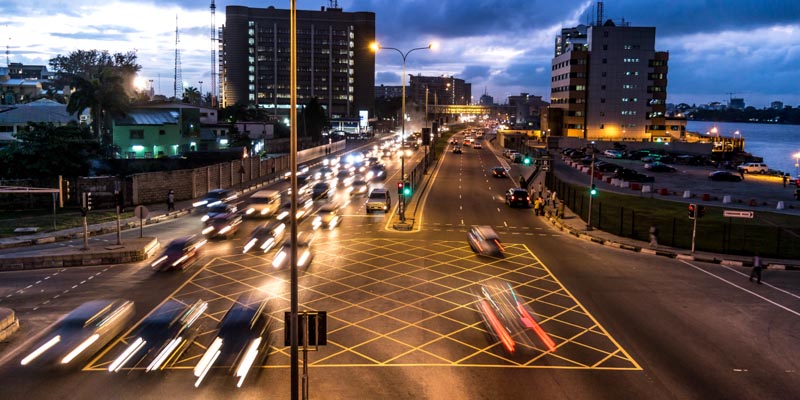
Lekki-Epe Expressway Sandfill Bustop, Lagos, Nigeria. (Chukwuka Tolulope Obu, CC BY-SA 4.0, Wikimedia Commons)
First off, it’s all about networks. Do the rules of your country facilitate local, regional, and international networks? A new Harvard study concluded that brisk business travel has the single biggest impact on building networks, diffusing knowledge, and birthing new industries. Europe’s own development benefited from its small land space, which tailored expansive, tight-knit networks that rapidly spread ideas revolutionizing everything from the sciences to football tactics.
Frequent trips to any major city in East Asia connect you to lucrative networks half a world away. Business travel (at least before the chaos of coronavirus) to East Asia is accessible, affordable, and hassle-free. The right infrastructure and laws — state-of-the-art airports, good accommodations, low-cost, high-speed telecommunications, rapid transportation links and whole scale visa liberalization — are needed to accommodate network-building travelers of every stripe and budget. African countries should follow suit, and streamline business travel, which would allow African travelers to build dense regional and continental networks—currently a tough ask when pre-pandemic flights from Nairobi to London were far cheaper than to neighboring capitals.
Since the 1980s, the Anglo-American West, ideologically intoxicated by deregulation, abdicated their society’s fate to self-interested individuals and free markets alone. East Asian countries enacted hardcore capitalist policies but never bought into this demented idea. The U.S. and U.K. spent the last four decades dismantling their states; East Asian countries meanwhile reinforced their capacity with vast investments in education, telecommunication and especially healthcare.
Thailand abandoned the neoliberal approach to healthcare in the early 2000s for a private-public model that guaranteed universal coverage and secured its place as the first country in Asia to eliminate HIV transmission from mother to child.
Both Singapore and Hong Kong have the most efficient healthcare systems in the world. Sharply guided public health policies underwrote East Asia’s masterful management of Covid-19. Vietnam and Laos had zero deaths from coronavirus while Germany, somehow a celebrated success story in the Western press, has over 9,000 deaths.
Recently, Kenya sought Thailand’s expertise in revamping a typically price-gouged private healthcare system. Ethiopia invited Vietnamese telecommunication companies to make its systems reliable, fast, and, like much of Southeast Asia, affordable.
In the Nigerian and Kenyan corners of Twitter, “The Singapore Solution” resonates. People yearn for a figure such as Lee Kuan Yew, Singapore’s first prime minister. Lee once told an Indian audience that Singapore’s model cannot be adopted by India, which, according to him, “is not a real country…Instead it is thirty-two separate nations that happen to be arrayed along the British rail line.”
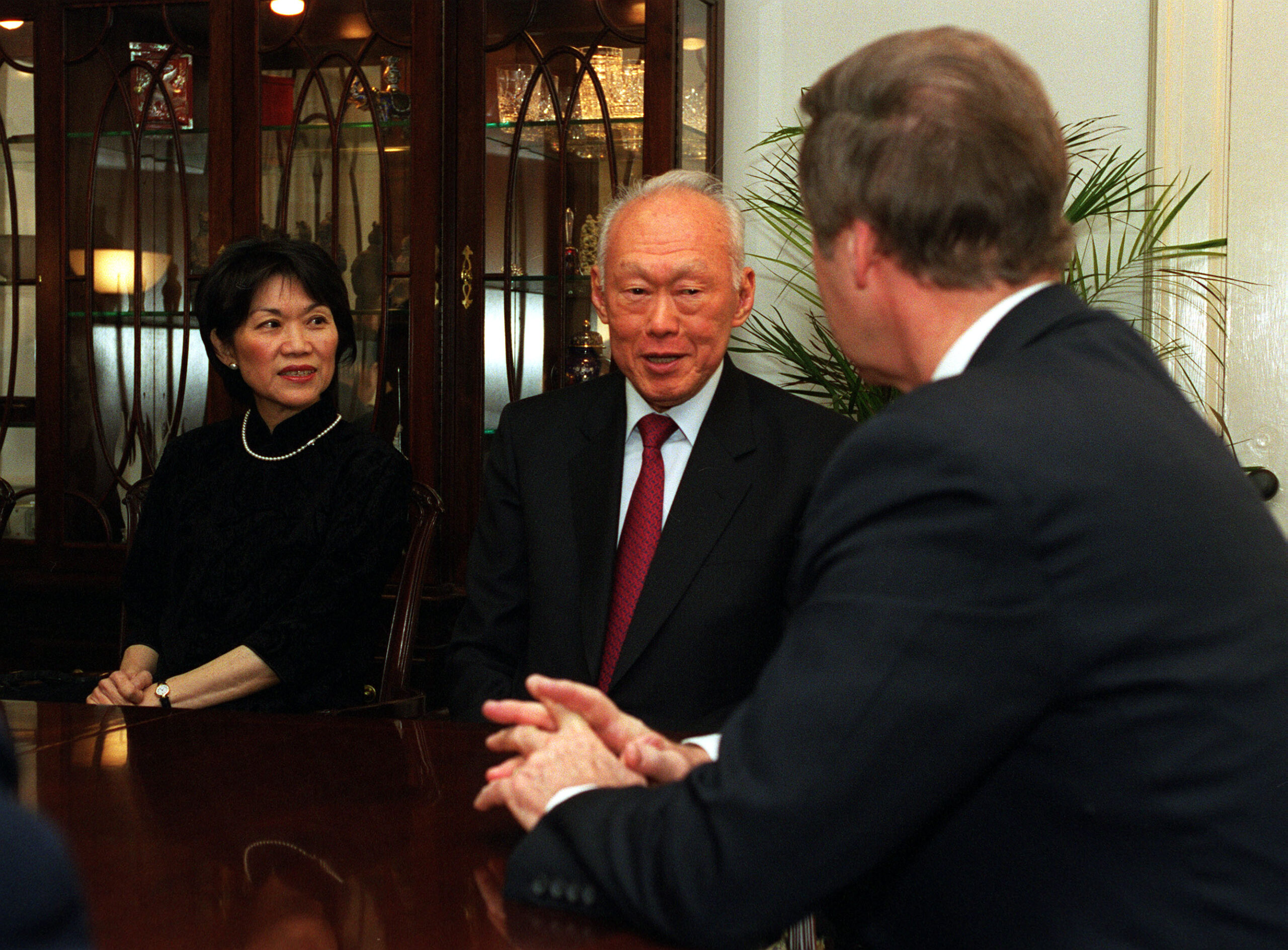
Lee Kuan Yew (middle) meets with U.S. Secretary of Defense William S. Cohen and Singapore’s Ambassador to the United States Chan Heng Chee in 2000. (DoD, Robert D. Ward, Wikimedia Commons)
The same can be said about Nigeria and Kenya. Singapore is an entrepot state of a few million at the gateway to the Malacca Straits, the world’s busiest shipping lane, with deep ancestral ties to China and India, the world’s richest economies for 1,800 of the last 2,000 years.
Each country’s trajectory is highly contingent on a set of unique circumstances and should never be applied wholesale. With the immense benefit of hindsight, Africans can choose from the best, most fitting lessons from the region, while staying vigilant of and mitigating many pitfalls.
For every one of me — inheritors of East Asia’s boom — there are, like New York City and London in the early 1900s, millions trapped as cheap labor servicing endless growth, forced to compete over scraps in unforgiving cities.
East Asian inequality is nauseating. South Korea has the highest elderly poverty rate in the OECD, with almost half of its senior citizens condemned to destitution rather than retirement. Only disparities that torture the soul can create award-winning films like Parasite.
Feature, Not a Bug
This is a feature, not a bug, of East Asia’s rapid growth. Opening up to global capitalism inevitably instills hierarchies and racialized aspirations. When I see advertisements for new luxury condominiums, possibly the most prevalent hoardings in Southeast Asia, it’s an image of a white man with his East Asian wife and mixed-race child. The message is clear. As Frantz Fanon wrote, “you are rich because you are white, you are white because you are rich.”
East Asia may not have the levels of violent, heartless racism on brazen display in Western societies, but the 1990s were a turning point. East Asians began to look down on those who modernization taught them to distrust. You don’t go from mourning an assassinated Congolese leader by the thousands to treating African expatriates as diseased in one generation without a drastic, very recent shift.
Some Westerners, like washed up drunks screaming profanities at a bar, might be tempted to repeat the mantras falsely underlining their sense of superiority to make preposterous demands of such young countries pieced together overnight. They might ask, “Well what of democracy? Human rights? Freedom of the press? Free markets?” These are all wonderful things, if they actually existed.
Not a single Western country was a democracy during its development. Western Europe had a fascist government in Spain until 1975.
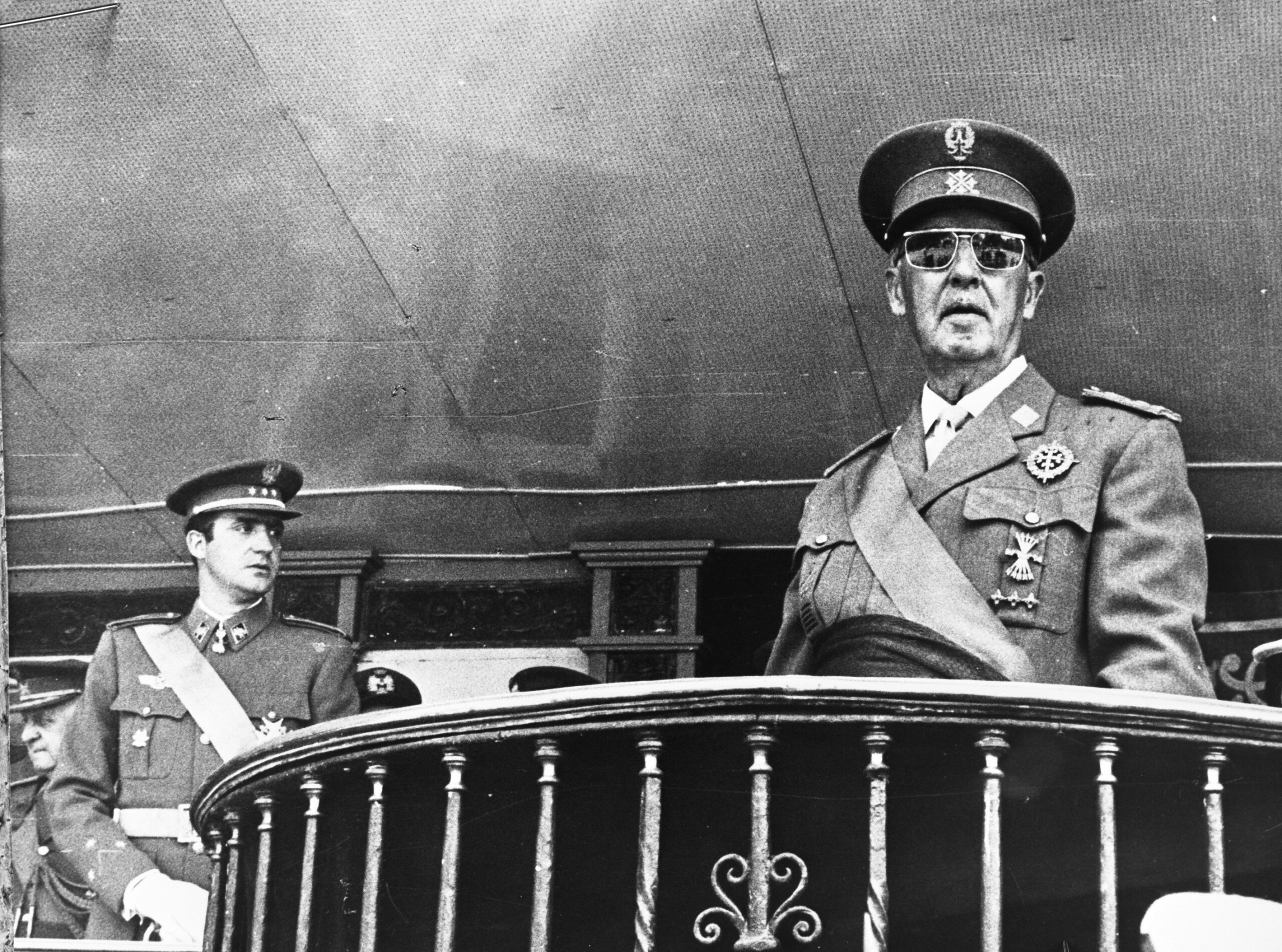
Spain’s Francisco Franco, at right, with Prince Juan Carlos in 1969. (Anefo, CC0, Wikimedia Commons)
France and Britain fought horrific wars to deny Algeria and Kenya independence even after defeating Nazism. You can’t be a democracy when you deny democracy to others. European colonies were run as totalitarian dictatorships and lasted well into the late 20th century.
Freedom of the press? Try criticizing Israel in the mainstream U.S. or German media.
Human rights? Europe lets migrants drown by the thousands in the Mediterranean. Australia has offshore camps for asylum seekers where abuse and rape are rampant. The U.S. has kids in cages and its cops murder young Black men for sport.

A George Floyd protest in Baltimore on May 30, 2020. (Elvert Barnes, CC BY-SA 2.0, Wikimedia Commons)
Free markets? Both the U.S. and Britain were viciously protectionist societies that relied on massive state intervention, and overwhelming military force, to mint its corporations.
The marriage of free markets to supposedly liberal democracy gave us Brazil’s Jair Bolsonaro, India’s Narendra Modi, the Philippines’ Rodrigo Duterte, and kept war criminal Benjamin Netanyahu as Israel’s longest serving leader. The Western liberal order, Indian writer Pankaj Mishra meticulously reveals, is an “incubator for authoritarianism” because it’s premised on fairy tales.
An open society, a vibrant marketplace, and a respect for human dignity are of course worthy and necessary goals. More representative forms of government, hopefully devised by us rather than imported from Cornwall, England, will arrive. We need not be “Jeffersonian Democrats;” we can surely do better than a system championed by slave owners.
As Deng Xiaoping said when China opened up after its century of humiliation, “Let some people get rich first,” which should be interpreted as a call to enrich societies as a whole before succumbing to obnoxious Western moralizing about values they rarely practice themselves.

Members of Korean pop group Baby Vox performing in 2004. (Jusang99, Korean Wikipedia)
Advancement need not only be predicated on economic growth and democratic politics and Africa need not only be the student and Asia the mentor. Asia has much to learn from Africa’s grand investments in culture in its earliest days. Aside from Vietnam, whose communist government funded the arts, and South Korea, which subsidized its K-Pop industry, most East Asian countries pay little attention to their cultural prowess on the world stage.
When kids in Djibouti listen to songs on their phone, it’s Somali music or Nigerian hits. Hop in a taxi in Accra or Khartoum and you hear that country’s sound. Africans listen to their own music. Southeast Asia does not. The richest music is derided as a pastime of lower classes, unfit for well-heeled urban elites. Talent gets lost in the never-ending roster of cover bands for top 40 American pop.
In Jakarta’s many behemoth malls, “you will not hear Indonesian music,” wrote journalist Vincent Bevins. “You will not hear Japanese music, or anything from Asia… It will all have been packaged and sold in the USA.” It’s the same story anywhere in the region.
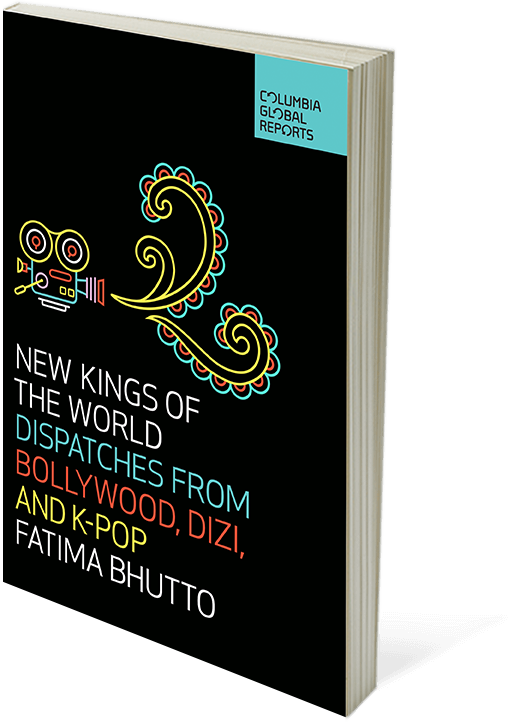 This may seem trivial, but a country’s image is vital to any lasting progress. In a world no longer able to “identify with, let alone aspire to, Hollywood’s white fantasies of power, wealth and sex,” wrote Fatima Bhutto in New Kings of the World: Dispatches from Bollywood, Dizi, and K-Pop, “a vast cultural movement is emerging from the global South… Truly global in its range and allure, it is the biggest challenge to America’s monopoly of soft power since the end of the Second World War.”
This may seem trivial, but a country’s image is vital to any lasting progress. In a world no longer able to “identify with, let alone aspire to, Hollywood’s white fantasies of power, wealth and sex,” wrote Fatima Bhutto in New Kings of the World: Dispatches from Bollywood, Dizi, and K-Pop, “a vast cultural movement is emerging from the global South… Truly global in its range and allure, it is the biggest challenge to America’s monopoly of soft power since the end of the Second World War.”
African countries laid the foundations in the ‘70s to fill this vacuum. Their image will be defined in the next decades by their stellar music, set to be in our lifetimes the global staple and standard. Independent labels and corporate players like UMG and Sony, now with headquarters in Lagos and Abidjan, have ensured unprecedented international access to Africa’s abundance of music, past and present.
African literary festivals have also blossomed, adding to an impressive six percent growth in the industry. It’s only a matter of time before small and multinational publishing houses scout a new cadre of young African writers to make household names, as they did in South Asia.Africa hosts over 35 annual literary festivals, even in struggling cities like Mogadishu, while East Asia only enjoys 21.
Economic engines inevitably slow. Southeast Asia in particular must emulate African pride in its own music and related expressions of culture to seize on openings left behind by a once omnipotent cultural hegemony in full retreat. South Korea understood this early and enjoys a powerful, beloved global brand molded by pop music and films, not per capita income.
Even if Africa and Asia swap carefully selected approaches, ultimate success is only possible from a unity akin to the 1955 Bandung Conference. When we again mingle and ally, when we mourn each other’s dead, when we scribble names on napkins as acts of solidarity, we will again realize our lasting success. The final phase to complete the process of decolonization will have to be done jointly, in unison, or never at all.
Vik Sohonie is the founder Ostinato Records, a Grammy-nominated label focusing on music from Africa’s past.
This article is from Africa is a Country.
The views expressed are solely those of the author and may or may not reflect those of Consortium News.
Please Contribute to Consortium News
Donate securely with
Click on ‘Return to PayPal’ here.
Or securely by credit card or check by clicking the red button:



“Vietnam and Laos had zero deaths from coronavirus.”
Technically true in a perverse way – every country had zero COVID-19 deaths before 2019.
How about “Cambodia and Laos have had zero deaths from coronavirus”?
All working class peoples and leaders of Africa and Asia must ally themselves together and break down all barriers to full human development of everyone. Inshallah.